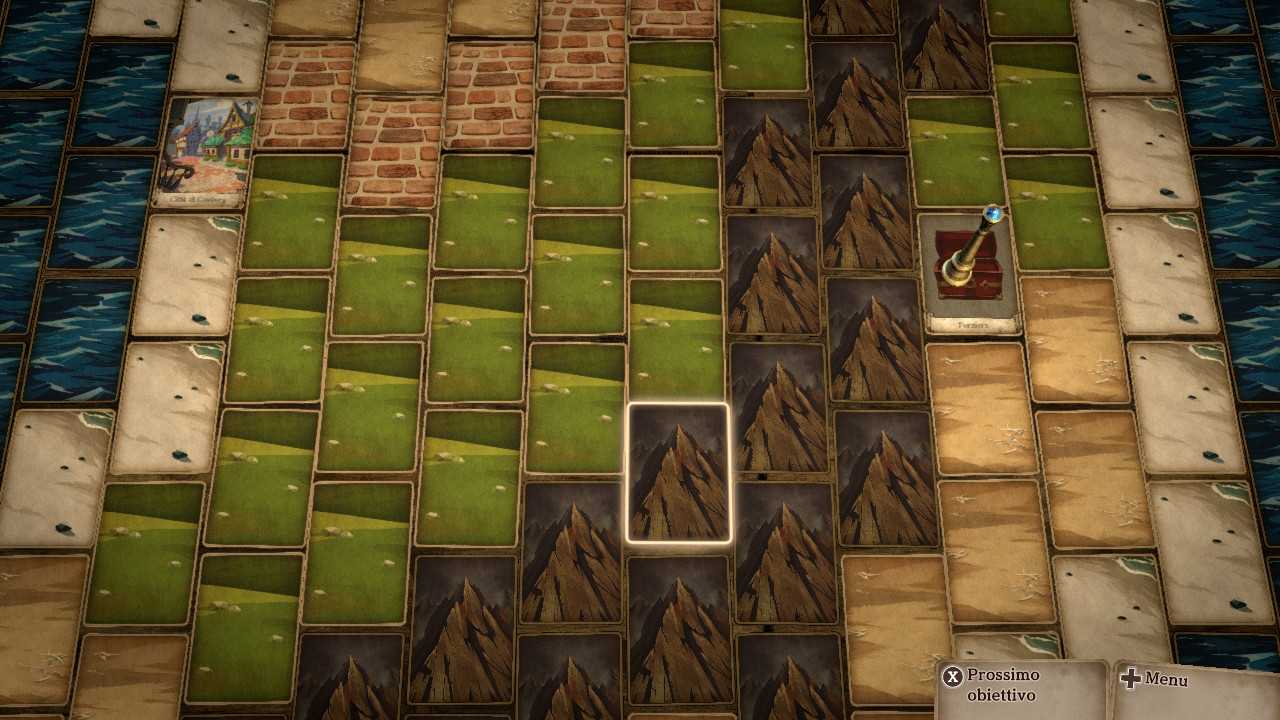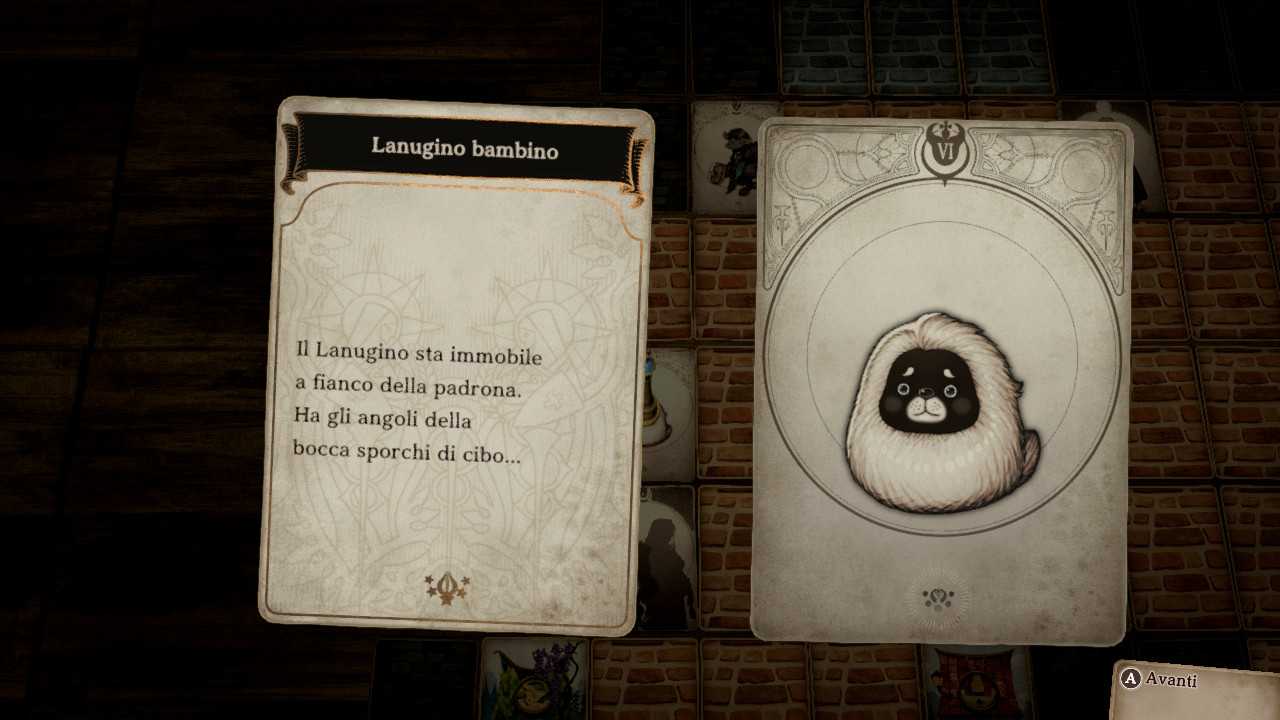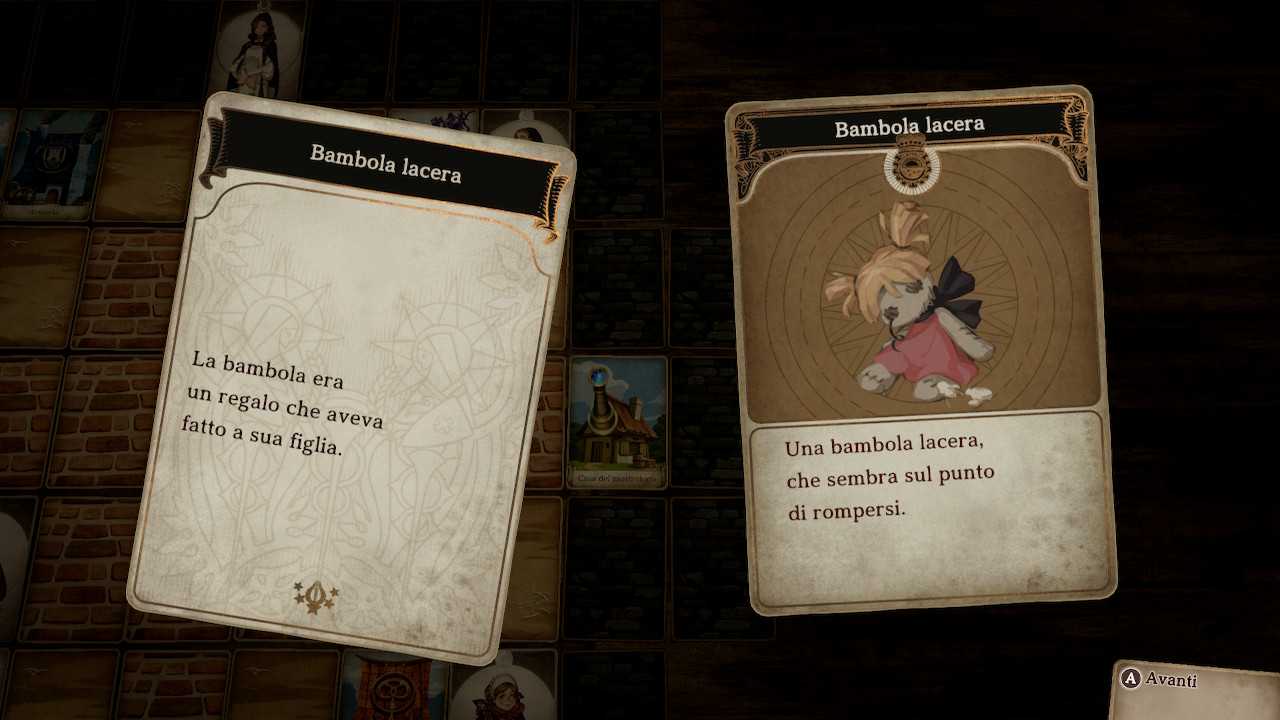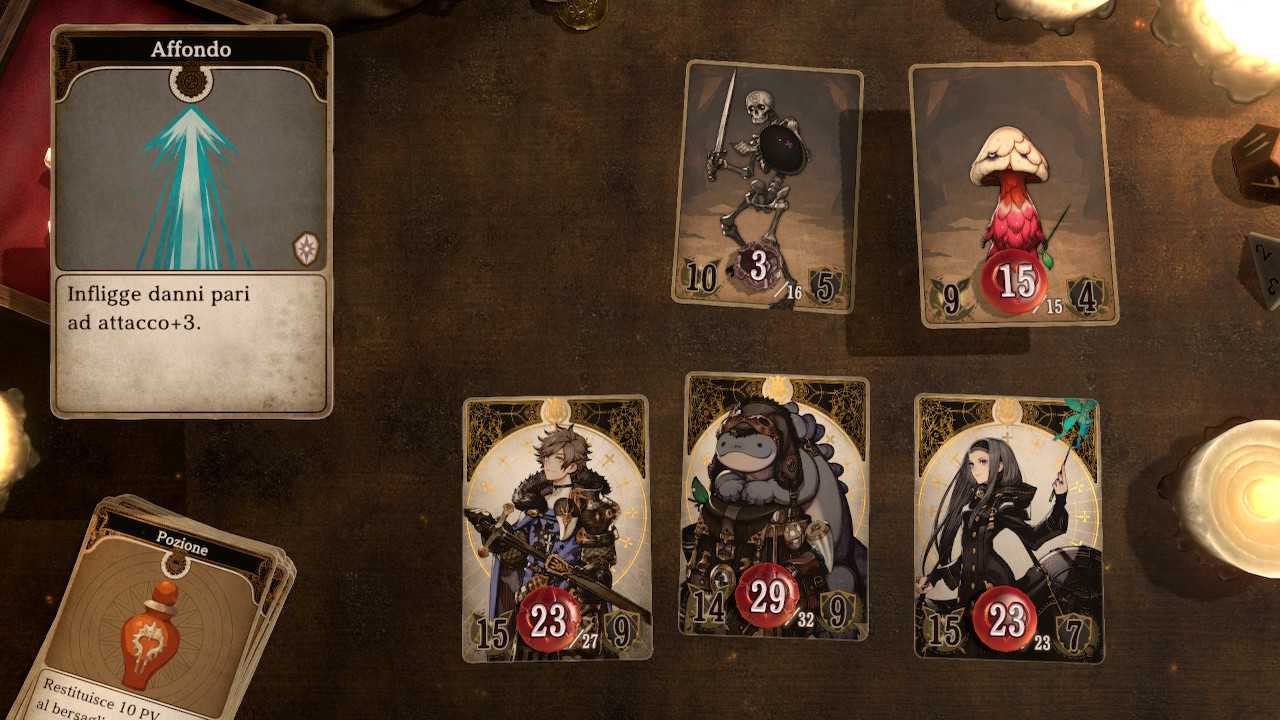Let’s find out together, in this long-winded review, if Voice of Cards: The Isle Dragon Roars is the little hidden gem we expected from Yoko Taro, or a simple turn-based JRPG with a sophisticated aesthetic.
Yoko Taro is a real “author”, who always puts something of himself inside the works he produces. The revamp of the Nier series of recent years, which has made a comeback thanks to the success of Automata, has put it back at the center of attention of the videogame world after so long that fans could just remember a mind as brilliant as it is extravagant. The “remastered” version (if it can be defined as such) of Replicant was the further step towards a (hopefully) rosy future of the brand, although it is still unclear which path Square Enix and Yoko Taro have decided to take.
Meanwhile, rather quietly, the author has made himself director of Voice of Cards: The Isle Dragon Roars, a Turn-based JRPG with a deliberately classic mold of which we have already told you, as regards our first impressions, in a delightful preview resulting from the demo version released some time ago. We spent about fifteen hours in the company of the title, also examining the post-game, and we therefore decided to collect our final opinions in this full-bodied article. Welcome to Voice of Cards: The Isle Dragon Roars review.
Isle of blight
Unlike what you might think by just throwing a glance at Voice of Cards (we’ll shorten it to that in the rest of this review), you’re not looking at a videogame-flavored board game. Aesthetics based exclusively on the use of cards is, precisely, only aesthetics aimed at characterizing more a very classic Japanese turn-based role-playing game. You will therefore not have to build any deck or pay particular attention to the mixing of the aforementioned cards: it is pure, simple and very intriguing aesthetics.
The narrative brings us to know Marren, a particularly full of himself and snooty anti-hero, who is accompanied by a sort of monster too cute to call him such, Lazuli. The banal narrative incipit sees these two strange heroes accept from the Queen the arduous task of killing the dragon that has recently returned to terrify the island and its inhabitants. Let’s be careful though: Marren and Lazuli are neither knights nor fearless heroes. They are simply two travelers without memories who, out of lust for money and fame, decide to take on a much bigger task than themselves, along with dozens of other rich aspirants.

An endless journey… | Review Voice of Cards: The Isle Dragon Roars
The hand of Yoko Taro in the narrative of Voice of Cards is noticeable right from the start. This is because, although as already stated the narrative incipit is very dull and lacking in bite, just a couple of hours of play will be enough to be attacked by a sense of uneasiness and terror. You will immediately realize that behind every dialogue, behind every fragment of narration, there is definitely something much bigger and deeper, and you will not wait to understand the reason for this feeling. The stories of Marren and the other protagonists are definitely engaging and, apart from some points that are a bit too predictable, captivating.
The main flaw of the Voice of Dragons narrative is definitely its duration: you will finish the first run in about ten hours, even less if you decide to continue straight. This obviously would not be a defect in itself as such, but the lack of time gives little way to the characters to develop adequately and the events to take shape with that bit of extra mystery, which is so dear to Yoko Taro’s hand and pen. .

… with endless endings. | Review Voice of Cards: The Isle Dragon Roars
If we move on to the gameplay, the main focus of Voice of Cards, we must return to that necessary premise we made at the beginning of this review. While it looks like it, Square Enix’s title is definitely not a particular RPG based on deck building or any board game element. Voice of Cards is a pure and simple turn-based JRPG, although there are some small and curious introductions to the more classic stylistic features, and we will go and see them.
The game world is made up entirely of cards, which our token, representing the entire party, will discover step by step during the exploration. The movements can be done in the four directions, and the first exploratory phase will put you in front of countless randomly generated clashes with the various enemies in the area. To greatly facilitate the backtracking (and the continuation of the narrative) comes the possibility of jumping at any time to an already uncovered (or visited, or rather) box, with the exception of some dungeons in which visibility will be reduced for gameplay.

Give voice to the cards!
During the exploration, as well as the clashes with enemies, you can come across random events ranging from strange rocks that can explode into monsters or money, peddlers who want to sell you their wares or damsels in distress. The dungeons instead, especially in the advanced stages, can put you in front of curious puzzles created specifically for the game world of Voice of Cards, such as discovering some hidden doors or reaching a certain point of the dungeon within a finite number of steps. From this point of view, however, we are sorry to admit that the developers could have used much more inventiveness and created even more interesting situations, but even in this case the short duration of the title intervenes to curb the enthusiasm.
The battles, on the other hand, seemed functional and fun to us. The team will consist of three fighters, selectable from the five totals that Voice of Cards will make available to us as we continue with the adventure, and each of them will have their own “deck” of skills to draw from. We will be able to select, to be precise, four for each fighter and they will be unlocked as the levels advance. Some abilities (almost all of them actually, with the exception of basic attacks) they will need Gems to activate, functioning like the classic JRPG magic points. We will get a gem for each turn, except for some specific skills, and we will have to pay close attention to their management in order not to remain dry in the least opportune moments.

Classic way… | Review Voice of Cards: The Isle Dragon Roars
The classic wheel of weaknesses / resistances classic of the genre is back, without particular flashes. Each monster will be weak or resistant to an element and it will be up to you to find out using the spells of a specific element or another. Even the weapons, armor and accessories (each of which can be equipped in number of one for each member of the team) will be represented in the form of cards and you can receive them both from the treasure chests scattered around the game world, and by purchasing them in Gold Pieces in the various Armories. In general the possibilities of customization will be very few, considering that each particular fighter will be assigned only one weapon and one armor. We will therefore go, gradually, using the increasingly powerful ones.
In general, the level of difficulty is not very geared upwards, even if you have to make a note. As good obsessives as we are, we spent several hours of play turning every single card of every single area of the map, thus going through a very long series of fights and, inevitably, level up. However, we are quite convinced that, avoiding this meticulous and painstaking exploration, there will come a certain point in the game where enemies will be ready to open you in two. Simple, certainly, but not benevolent up to this point.
In Voice of Cards there is also an interesting one card-based minigame (but it goes there), although it would actually be better to say that they are several minigames in one. The variation of the rules, in fact, will lead the minigame to be gradually more and more complex and articulated, completely transforming it from a banal and simplistic first approach. Furthermore, once you have played the first game, you can also select it from the main menu, without even having to bother to look for a city and find the Games Room.

… best way? | Review Voice of Cards: The Isle Dragon Roars
From a purely technical point of view, Voice of Cards is a purely static title, so it doesn’t look bad in any way even on the Nintendo Switch hardware, where we got to try it for this review. The only uncertainty that we could notice is in the management of the menus, which especially in portable mode suffered some drop in frames in the passage from one page to another. Another awkward note is the adaptation of the texts in Italian, which as always differs enormously from dubbing (available in both English and Japanese). So much so that, after a few hours spent with English-speaking dubbing, we necessarily had to switch to the Eastern one, to avoid that wave of annoyance due to the lack of synchrony between written and spoken.
Aesthetically speaking, Voice of Cards are truly a joy to behold. Extremely detailed in every respect, even those of the secondary characters, we remained really fascinated by the character design of Kimihiro Fujisaka, meticulous and detailed. We were really burned by the short duration of the title, if only because we definitely wanted to see more cards. The sound accompaniment of an Okabe not in very good shape is also good, a bit like Yoko Taro in this case, but who nevertheless managed to excite us on several occasions (and create some tunes that we are still humming).

Voice of Cards
In conclusion of this Voice of Cards: The Isle Dragon Roars review, the question that arises is quite obvious: is it the half-hidden Yoko Taro pearl we were expecting? Definitely no. The short duration and the lack of inventiveness in general undermine what could have been a decidedly more captivating and innovative experience. It remains that the title of Square Enix is a discreet JRPG with a classic formula, a truly delightful aesthetic and characters that will know how to enter your heart, albeit with passo felpato.
We remind you that Voice of Cards is currently available on PC, PS4 and Nintendo Switch. Let us know what you think below in the comments, we will continue to keep you updated with all the news, guides and reviews on videogame and tech! And if you are interested in game keys at advantageous prices, we recommend that you take a look at the InstantGaming catalog!
We wanted more! But we are satisfied …
Points in favor
- Interesting and engaging narrative …
- Fun gameplay …
- Captivating aesthetics
Points against
- … which, however, does not have the time to grow up enough
- … but with very few innovations
- All too hasty















Leave a Reply
View Comments